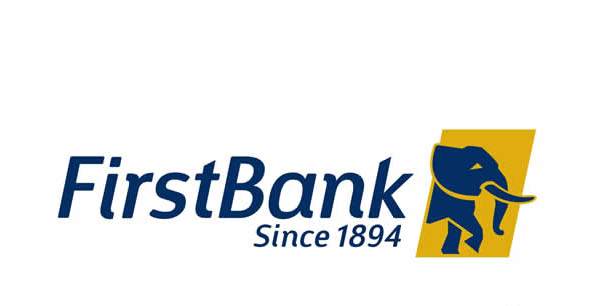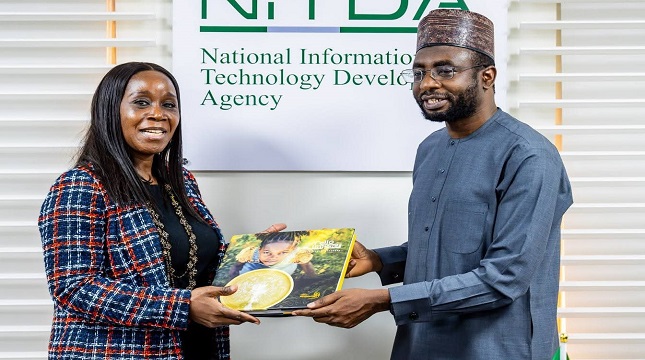General News
First Bank Cushions Effect of COVID-19 on SMEs in Education Sector

First Bank of Nigeria Limited has offered to give financial support to Small and Medium Enterprises (SMEs) in the Education Sector to cushion the effects of the COVID -19 pandemic.

Mr. Bankole Adediran, head, Transaction Banking Products, FirstBank, made this known at the Bank’s SMEConnect webinar with the theme: “Managing Your School through the Pandemic: Engagement and Retention Strategies”.
Adediran said that the Bank was ready to partner with SMEs in the education sector through the period of the novel coronavirus pandemic to sustain their businesses.
“FirstBank, as an institution, is very passionate about education, and will continue to support the sector,” he said.
He said that the Bank would continue to reinforce its leading role at enabling the growth of the educational sector in the country.
Adediran said that the Bank had an array of financial products that could be accessed by SMEs in the educational sector in the period of COVID -19.
He said SMEs in the sector could key into FirstEdu Loan targeted at private nursery, primary and secondary schools to assist the schools in achieving their desired growth in medium and long terms.
According to him, the product provides funding advancement of up to N20 million for schools with a minimum of 100 students with school fees collection domiciled at FirstBank.
Adediran said that, with the product, school owners/proprietors could stay ahead to make learning easy and conducive for students.
He said the Bank had launched various interventions and initiatives to support the sector to navigate through challenges occasioned by COVID -19.
He noted that FirstBank recently launched an e-learning initiative aimed at reaching out to one million students across the country to ensure they would be academically engaged while at home.
Adediran also said that the Bank supported 10 universities and three secondary schools across the country with major infrastructure projects.
He added that the Bank donated 20,000 e-learning devices to the Lagos State Government to promote online learning for students in public schools.
Adediran urged schools must learn from the COVID -19 pandemic by embracing automation to plug leakages in the sector.
Mrs. Folasade Adefisayo, commissioner for Education, Lagos State, who was a panelist at the webinar, commended the Bank for donating 20,000 devices with six months of data, to the state for e-learning.
Adefisayo said the state reached out to many companies for support in the wake of the pandemic and that FirstBank came to its aid.
She disclosed that all the schools were not prepared for the situation, noting that most children in public schools did not have devices and data for online learning.
“This pandemic has been a terrible thing, and one lesson from it is that we have not invested enough in solutions we can deplore at a time like this,” Adefisayo said.
She said that the pandemic had forced Nigerians to be more creative and innovative, adding that schooling would no longer be the same again.
Adefisayo called on teachers to change their teaching and learning strategies, saying that COVID -19 had changed learning.
Also, Dr. Yomi Otubela, president, National Association of Proprietors of Private Schools (NAPPS), said the association had responded greatly by interfacing between government and its agencies since the beginning of the pandemic.
Otubela said the Central Bank of Nigeria was working out modalities for palliatives for schools and teachers who had not been receiving salaries since the pandemic started.
He noted that there had been an increase in rape, kidnapping and robbery as a result of COVID -19.
Mr. Wale Abioye, Team Lead, Customer Practice in Management Consulting (KPMG), said the pandemic had impacted negatively on many sectors of the economy, especially education.
Abioye highlighted some of the negative impacts of the pandemic to include financial/economic, structural, social, and policy challenges.
He said many SMEs in the educational sector could be out of business due to the pandemic, thereby increasing the unemployment rate.
Mr. Babatunde Vaughan, Education Lead, Modern Classroom, Microsoft Nigeria, said the company had introduced a lot of products to make online learning easy and interesting.
“COVID -19 is a very unique period for everyone, change has come and we will continue to experience change. We must be more proactive than reactive,” Vaughan urged. –
General News
NIN Enrolment Hits 117.3m – NIMC

National Identity Management Commission (NIMC) has announced that as of February 28, 2025, the number of Nigerians enrolled in the National Identification Number (NIN) database has reached 117.3 million.

This marks a significant increase of over seven million registrations since September 2024, when the figure stood at 110 million.
Gender and State Distribution
The latest statistics reveal that 56.5% of registered individuals are male, totaling 66.2 million, while 43.5% are female, at 51.07 million.
Among states, Lagos leads with 12.6 million registrations, followed by Kano with 10.2 million and Kaduna with 6.9 million.
This is consistent with the high populations in Lagos and Kano.
Other states with notable enrolment numbers include:
Ogun (4.9 million),
Oyo (4.5 million),
Katsina (4 million).
In contrast,
Bayelsa (758,111),
Ebonyi (990,775),
have the lowest enrolment figures.
The government has been emphasising the need for citizens to link their NIN to access essential services, including social services, financial transactions, and telecommunications.
A well-developed and accessible digital ID system is seen as vital for effective digital governance.
Beyond strengthening security and promoting transparency, this initiative aims to enhance the efficiency of service delivery across the country.
General News
NITDA, MTN Foundation Collaborate to Boost Digital Literacy

As part of efforts to reform the economy for sustained and inclusive growth, the Director-General, National Information Technology Development Agency, (NITDA) Kashifu Inuwa, CCIE has called for a collaborative partnership between NITDA and the MTN Foundation to promote digital literacy and capacity building in Nigeria.

Inuwa made this call during a courtesy visit by MTN Foundation delegation, led by Odunayo Sanya, at the Agency’s Corporate Headquarters in Abuja.
The Director-General emphasised the importance of synergy in fostering digital literacy and advancing President Bola Ahmed Tinubu’s agenda of promoting industrialisation to create a dynamic and diverse economic landscape.
He noted that NITDA’s initiative, DL4ALL, aims to achieve 95% digital literacy across the country by the year 2027. “This aligns with the Agency’s strategic pillar of fostering digital literacy and cultivate talents,” he noted.
Inuwa also highlighted NITDA’s dedication to developing a digital literacy framework based on UNESCO and DigiCom standards, adding that the Agency is collaborating with stakeholders to create a three-phase curriculum for primary, secondary, and tertiary institutions, with a focus on prioritising skills over certifications.
The MTN Foundation shares similar goals and currently offers online programmes featuring over 4,000 courses, with 2,000 young Nigerians already registered.
Mr. Sanya commended NITDA’s initiatives and invited the Agency to unveil its academy platform on April 17th of this year.
Both organisations have agreed to establish a committee to efficiently achieve their shared objectives. This partnership is expected to drive digital literacy and capacity building in Nigeria, aligning with the country’s national development agenda.
General News
MTN Nigeria Takes Go MAD Campaign to The Entrepreneurial Hub of Aba

MTN Nigeria is set to bring its Go Make A Difference (Go M.A.D) campaign to Aba, Nigeria’s renowned enterprise hub, on Sunday, March 23, at Sugarland, Luxury City Hotel.

This initiative continues MTN’s mission to inspire Nigerians to take deliberate steps toward community development and digital empowerment.
Speaking with the press at the campaign launch, Onyinye Ikenna-Emeka, Chief Marketing Officer of MTN Nigeria, shared the inspiration behind the Go M.A.D initiative. “At MTN, we believe in driving progress, giving our customers the power to rise above challenges and create something extraordinary. The Go M.A.D campaign is rooted in the belief that MTN data gives you the power to take on the world, to achieve the extraordinary, and to make a meaningful difference, in your community, your family, and your workplace. It’s our way of saying: we see you, we support you, and we’re here to make your journey better.”
Following exciting stops in Abuja, Enugu, Calabar, Ibadan, and most recently Benin, the campaign now heads to Aba with a promise to spotlight the city’s rich entrepreneurial spirit and creative talent.
In Aba, attendees can expect a thrilling fusion of technology, entertainment, and culture, with augmented and virtual reality zones, a flash mob, interactive games, special guests and inspiring real-life stories. The event will also feature Kahoot trivia games, a Go MAD puzzle, a pledge wall, and giveaways of MTN-branded merchandise and digital devices.
A highlight of this event will be the Talent Showcase, dedicated to spotlighting Aba’s emerging creatives and innovators. This platform provides local talents the opportunity to share their creative skills and connect with a broader audience.
Set against the backdrop of Aba’s reputation as a powerhouse of local industry and innovation, the event will celebrate individuals, known as Go MAD Icons, who are making a difference through MTN Data by driving social impact, growing businesses, or sharing knowledge digitally. These icons will serve as powerful reminders of what’s possible when creativity meets connectivity.
As with the previous activations in Abuja, Enugu, Ibadan, Calabar and Benin, cultural expression will remain central to the experience, with performances and installations that pay homage to the Igbo culture while encouraging young people to take positive action in their communities.
MTN’s Go MAD campaign is not just a series of events; it’s a national call to action. By merging storytelling, digital experiences, and grassroots inspiration, the campaign continues to engage Nigeria’s youth and highlight how technology can be a force for change.

 Telecom2 days ago
Telecom2 days agoATCON Calls for Telecom Policy Improvements in Nigeria

 E-Business2 days ago
E-Business2 days agoGoogle to Buy Cybersecurity Company Wiz for $32Bn

 E-Business2 days ago
E-Business2 days agoDarey.io, Xterns.ai to Expand Digital Skills, Experience Through Lagos Tech Hub

 E-Business2 days ago
E-Business2 days agoMicrosoft Warns of StilachiRAT Malware Threat to Cryptocurrency Wallets

 Telecom2 days ago
Telecom2 days agoMTN Group to Invest $10Bn in African Expansion by 2030

 E-Business2 days ago
E-Business2 days agoSenate Votes to Compel Facebook, Others to Open Offices in Nigeria

 E-Business1 day ago
E-Business1 day agoFirm Offers Steps to Prevent a WhatsApp Account from being Hacked

 Telecom2 days ago
Telecom2 days agoMoMo PSB Launches ‘Refer & Win’ Promo with Airtime and Data Rewards for Loyal Customers


























